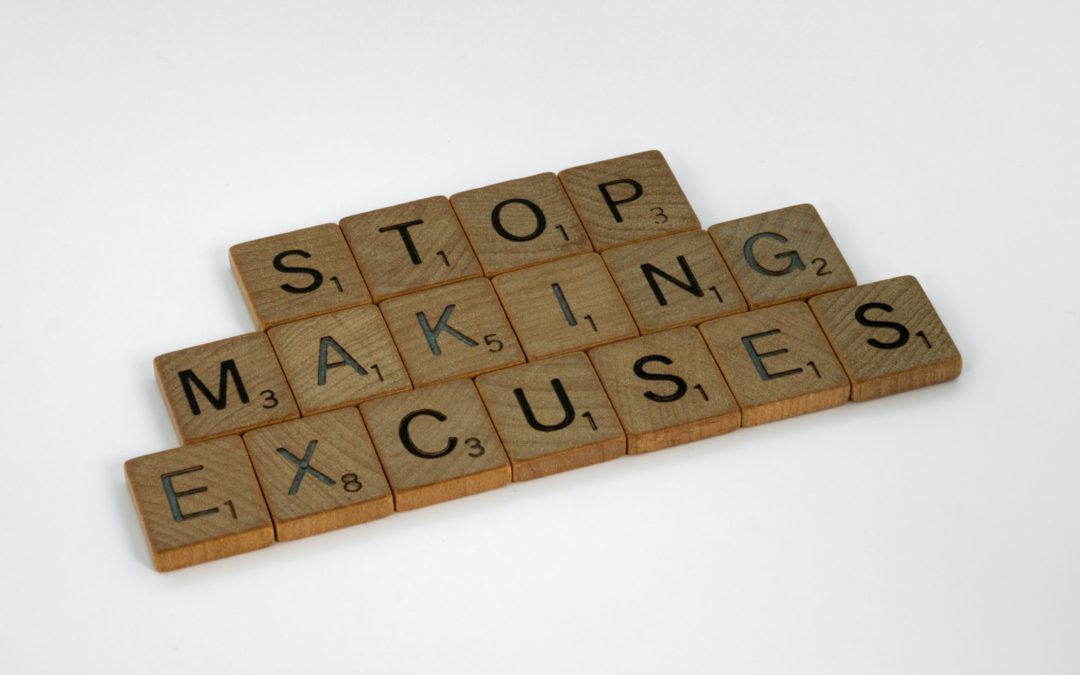
by admin | Jul 22, 2022 | Simple Self Help
Fear can be crippling in the way it affects your thinking and begins to push its way into your conscious and un-conscious thoughts. The fear of the unknown is one aspect that can be dealt with in a logical way, i.e. if it is unknown then there is an element of being able to contain and explain the fear.
However, where fear is about exaggerating existing ills or troubles and making them many times worse, this can be destructive to those experiencing the fear as well to the people around the person with the fears. You know that the damage from an accident has been limited to a certain amount, or that the nature of the relationship is such that when one person says this the other always says that, but does nothing more. Yet, when fear takes hold of a view on perhaps the damage from the accident or the anger within the relationship, fear will magnify the issue far beyond realistic proportions and can cause huge pain and suffering where the person going through the fear is unable to assert his or her reality onto the fearful thinking.
The exaggeration of small concerns or fears can be such that one party in the conversation or relationship can see the distortion that the person going through the fear can no longer perceive. When this happens it can be very challenging for the observer to stay within the context of the conversation or discussion before the whole situation grows out of proportion.
Seeing only from a perspective of logic is not always helpful to the person experiencing the fear either! Many times I have heard from clients where one person is in the grip of a fear that they cannot truly explain to their more logical partner. Sometimes the best solution is not for a solution to be found at all, but for the person going through the fear simply to be heard out with what is hurting them and causing them such anguish. They may just need to be heard, not provided with the answer.
As human beings there is an ancient survival need for us to experience elements of stress, worry and fear. How else would we have survived attacks from sabre-toothed tigers and woolly mammoths millions of years ago if it had not been for these emotions giving us the 'fight or flight' response to imminent danger? But the tigers and the mammoths have been replaced by utility bills and corporate takeovers that threaten potential redundancy; by the mountain of email where each sender expects we will respond to them immediately; by the pressure at work and socially to conform to the expectations that co-workers and neighbors have of us in those situations. No wonder we get to feel the stress, worry and fear as we go through our own daily lives.
But, and this is a big but, there is no need for us to let the three demons of stress, worry and fear intimidate us and force us to lower our heads in submission. Life is filled with staggering opportunities, and with tremendous scope for joy and satisfaction. Yet it seems that the more automated, structured and digital our lives become the easier it is to be overwhelmed by the amount of data traffic, conversations, work transactions, social media posts and information we need to manage and handle. As a result it is hardly surprising that we begin to get to the place where we feel scared, worried, concerned and anxious that we will be unable to cope.
Instead, acknowledge what you can and cannot tolerate as acceptable levels of stress and worry and begin to eliminate the causes of those, to reduce the impact of the various pressures and to work our corrective changes to what you are going through in order to reduce the stress you are presented with.
Life is not easy when you are facing such pressures, but it is important for you to consider what is and what is not acceptable in terms of the causes. Where possible, take action to correct what is not working and to see what is out of context with your own value system. So often the issues can be diminished by seeing how they are out of sync with what matters to you in the first place, and adjusting from there.

by admin | Jul 21, 2022 | Declutter
Financial clutter is less obvious to the eye than old furniture, unused toys, or ugly crockery. Bank statements, paperwork in envelopes or piles of unopened post, these items can be without order and difficult to navigate.
Are all your paper bank statements in one place and easy to access in just five minutes? The chances are high that you don't keep all your financial information in one place, that as new paperwork comes in to your home it does not systematically end up in the same place that you keep and store your financial records. This is simple to change, and requires only that you become conscious of it. Resolve this quickly and simply by keeping all financial records, statements and passbooks in the same location in your home.
Start with your bank statement and look at all the transactions for a two month period and particularly at the regular and committed payment arrangements you have set up. Are any of these for Shopping Clubs you no longer participate in, for incentive and Discount Clubs where you joined to save money and yet never have enough money to spend to qualify for the Sports and Leisure or Dining Club activities you were seduced by to begin with. If you find any of these regular payment programmes, cancel the payment and cancel the commitment. Just three or four such items at $10 to $20 a month will save you $300 - $400 and more this year. Keep that money in your account and get the potential benefit of being able to ask for a discount the next time you are going to buy something significant and have the cash available for the barter.
What about the files, binders and unopened Financial Post that is stashed randomly around your home? Get these all out and in one session go through them. If you have any papers that are more than a year old shred and dispose of them. A small shredder for your home will occupy far less space than the volume of unneeded statements, letters, documents and general papers that are taking up space in your life and adding to the stagnant energy. If you run a business from home you will need to check with your Tax or Revenue office about the timescale for keeping all financial transaction records, and comply with these requirements. In many cases keeping the detail for the past twelve months and good annual summaries for the previous five to seven years is more than adequate for you and allows for a lot of discarding.
Stay up to date with Financial Apps that allow you to track your spending or monitor your investment monies easily and all from your phone or laptop. Have you looked at installing a Water Meter to your home so you only get billed for your actual use? How about asking your Energy Company for a free Smart Meter to monitor your home usage of gas and electric?
I maintain several properties that we rent out to individuals on a room by room basis. Each house requires a folder for utilities, tax records, rental income, finance costs, cleaning services, purchase of furniture, bedding, carpets and maintenance work. Each house has a subsection within a folder for tenants, all filed alphabetically by surname. One year after a tenant leaves I shred all records of correspondence with them and all their personal details. The housing paperwork is our largest block of paperwork for any ongoing theme and still it only fills a dozen large binders. I don't keep those at home, but instead maintain the paperwork in a small office cum storeroom in one of the buildings. The new space for paperwork has come about by adding upright bookshelves to a small room and using these for keeping stuff neatly and off the floor. Before I got organised and started the letting go process, I had paperwork all over the place and wasted a few hours each week looking for documents. In the old days the paperwork, post and document files, tool kits, tins of paint, and new bedding sets messily took up a room that has now been let as a tidy and well furnished bedroom. The difference in getting organised for just this one example can easily be measured by the $100 a week rent I receive on that bedroom. The paperwork is organised and easy to reference while the income on that house has gone up by $5,200 a year from a space that was poorly used.
Deal with each monthly summary statement as it comes in, whether by paper or email. Check the expenditure against your own receipts. Take any purchase receipts from your purse or wallet on a certain day each week and put them in a place where you do your finances. When your bank statement comes in simply check off the purchase receipts against the larger monthly statement. Everything should match. If you are self-employed and doing your own tax returns save each weekly envelope and date it for easy reference later. When the full tax year is done you can provide the bank statements and the receipts to your book-keeper and you keep your costs down because you are in control.
Get clear on your financial paperwork and you will naturally find yourself better able to make decisions about what to do with your assets so that they start to work for you, building your future wealth and financial freedom. The clearer you get with your finances the harder your money can work for you.

by admin | Jul 14, 2022 | Simple Self Help
Creating the life you want, and producing the results that matter to you is about ensuring you are clear on the values by which you live and lead that same life. If you expect challenges you may get them. If you anticipate a bed of roses and an easy walk through the park, it is likely you will get this or something akin to it. Develop the focus that supports you.
Your vision and the values by which you lead your life each day are crucial in underpinning the results you get and the actions you take in order to create the results you want.
If the vision you have is a measure of the breadth of your ambition then expanding your vision is likely to have a corresponding impact on the results that you achieve. Tied in very closely with this is the matter of the values that you embrace and live with as your pursue your vision of a life that truly reflects not only what you want, but also who you are.
The values you hold might be such things as honesty, hard work, thrift, balance, happiness, friendship, trust, self-discipline and others. Each one that you identify and adopt for yourself is a piece of your own personal jigsaw. In the same way that principles are timeless so too are values. These values act as a benchmark by which you can judge and assess not just the progress that you are making towards your goals, but also serve to help you measure yourself against colleagues and friends, clients and suppliers, relatives and family members.
A man spoke with me not long ago about an issue he was concerned about and which was based upon the clash of his vision and his values. While he was making more than adequate progress financially with the business he ran in his home town, he often found himself looking at other business owners who appeared to have more money, greater status in the chamber of commerce and greater success in life.
The issue that he wanted to discuss with me was abut the dilemma he found himself in. Knowing of a way to adapt his business that would allow him to make greater profits and bank much more money, his concern and the sense of his anxiety he presented me with was this - he could achieve the new contracts but only at the cost of doing some things that went against his most heartfelt values about the need for business to be a win- win relationship. Wanting always to feel that he gave a fair service for a fair price, the possibility that he could do some deals where his profit was out of proportion to the service now troubled him. To obtain the new revenues he would be doing things that he knew would cause him to feel guilty, and so he chose to listen to his heart and turned down the opportunity.
As he went away from our discussion he was concerned that he might have missed out on the 'apparently' lucrative deal, but pleased with himself for not having breached his value system.
Just two weeks later he called me up with great delight obvious in his voice as we spoke. He had that morning received an offer of a contract that was in line with his values of decent service, fair contribution and looking after the customer, and which would give him a significant uplift in his profits. He had been rewarded for not selling out his values and for maintaining his self-belief even after the stress of the previous opportunity.
In your own life there will of course be times when the principles and values that you live by will be tested. Equally, you will discover time and again that the more you lead a life in which your vision and values are in alignment together, you will receive rewards and pleasures unheard of by those who do not understand. Hold to what you know and feel to be right.

by admin | Jul 13, 2022 | Simple Self Help
If you say you will be home for hockey practice, or dinner, or a trip to the cinema, don't then ring home to say you have been delayed or that you have to work late. I know and it has cost me dearly! It might have been OK if it was an excuse a couple of times, but to be repeated week after week will get you in deep trouble and understandably so as you begin to realise with sadness that others may end up expecting you to let them down.
One of my friends keeps a special place in his diary for his commitments and this always impressed me so much since I discovered this.
These are distinct from his appointments which are normally times when he has to show up and be in meetings or with family. William's commitments are different. Here he will list the thing he has agreed to do and the date he has promised it by, as well as the outcome of achieving the commitment.
Next to these he has the penalty written down for not accomplishing the commitment. He actually writes down on the paper the true cost of letting someone down if he does not deliver, fails to turn up, gets the report in late or misses the party. I had never seen this recorded before and it struck me how valuable it is to make a commitment and to honour the promise. Seeing his promise and the cost of not delivering written down in black and white in his journal, this was a tremendous wake-up call for me.
In the sense of using this approach like an emotional bank account he knows whether he is in credit or if he is at risk of becoming overdrawn in his relationship with the person to whom he has made the commitment. Is this a little extreme? If it works for you to do something like this yourself, then do what works. It does not matter what others might think about it.
Try it, and see if the real test produces fruit, namely that you break less commitments and honour more promises than you did before. If you can see progress in this approach as opposed to whatever method or behavior you were following before, then you know for yourself you are on track.
A promise to be there for someone is still a promise however you look at it. No matter that your train was late or that you needed to stop for gas and got delayed. In the eyes of the other person maybe you should just have been on the earlier train or filled up with gas the night before.
I can't hold my hand up and say I don't understand this, as I have been late more times than I care to remember and it was only when I focussed on the actual promise made that I found myself turning up on time or leaving early for my destination that I saw the excitement in the eyes of another when I arrived in a timely fashion and was there when I said I would be there.
Your own peace of mind will be enhanced and those around you will notice and comment with pleasure on the change in your behavior.

by admin | Jul 7, 2022 | Declutter
If you are in a financial muddle and wanting to understand the trouble, then brew yourself a coffee, grab those statements and start to hunt for the clues that can help you get back in control. Within those columns of money in and out are the trends and spending patterns that reflect your approach to money.
Look at all transactions for a two month period, particularly at the regular and committed payment arrangements you have set up. Are any of these for Shopping Clubs you no longer participate in, for incentive and Discount Clubs that you joined to save money and yet never have enough money to spend to qualify for the Sports and Leisure or Dining Club activities you were seduced by to begin with. If you find any of these regular payment programmes, cancel the payment and cancel the commitment. Just three or four such items at $10 to $20 a month will save you $300 - $400 and more this year. Keep that money in your account and get the potential benefit of being able to ask for a discount the next time you are going to buy something significant and have the cash available for the barter.
Can you see some transactions you don't recognise? Raise these with your bank and have them check for fraud. Identity theft and false transactions are increasing as fraudsters become more skilled at making tiny deductions to accounts, on the correct idea that most people only query large deductions they don't recognise. It doesn't need to be fraud. You may have a load of small repeat payments for apps or services you have stopped using, but which you have never cancelled.
Are there regular small purchases such as Coffee and Snack Food to and from work each day which might constitute $10 or $20 per day, but which add up to several thousand spent over the course of a whole year? Making up a flask of coffee at home in the morning will save you a huge amount of money that can instead stay in your account and be used for investment and long term income. Take a food pack-up with you a couple of times a week as much for the variety of taste and flavour as for the money savings.
What about files, binders and unopened Financial Post stashed around your home and taking up useful shelf space or occupying cupboards? Get these all out and in one session go through them. If you have any papers that are more than a year old shred and dispose of them. A small shredder for your home will occupy far less space than the volume of unneeded statements, letters, documents and general papers that are taking up space in your life and adding to the stagnant energy.
Stay up to date with Financial Apps that allow you to track your spending or monitor your investment monies easily and all from your phone or laptop. Have you looked at installing a Water Meter to your home so you only get billed for your actual use? How about asking your Energy Company for a free Smart Meter to monitor your usage of gas and electric? With these installed you can actively manage the way you use energy in your home, often adjusting your behaviour simply because you become aware of the cost of usage. It can be tiring to deal with the potential mountain of financial paperwork that comes in to your home. Realise that no matter where the paperwork comes from you can choose what to do with each letter or email.
In your personal finances deal with each monthly summary statement as it comes in, whether by paper or email. Check the expenditure against your receipts. An easy way to do this is to take any purchase receipts from your purse or wallet on a certain day each week and put them in a place where you do your finances. If you don't have any specific filing area at home, each week take the expense receipts for that week and place them in an envelope. When your bank statement comes in simply check off the purchase receipts against the larger monthly statement. Everything should match.
The benefits of being more financially organised include greater peace of mind because you know where things are, more relaxation because you spend less time worrying and less wasted money because you are not repeat buying things that you thought you lost among the clutter. Good decisions are not supported by chaos, disorganisation or by having to look for information. As you sort, organise and structure your financial records you will naturally be drawn to look at their performance and the creation of more financial security and enhanced rewards from your activity.
In becoming better organised with household finances you can get closer to your financial goals, precisely because you know what your money is doing and how it is performing. By getting clear on financial paperwork, statements and information, you will naturally find yourself better able to make decisions about what to do with your assets so that they start to work for you, building your future wealth and financial freedom. The clearer you get with your finances the more likely it is that your money will work better for you.




